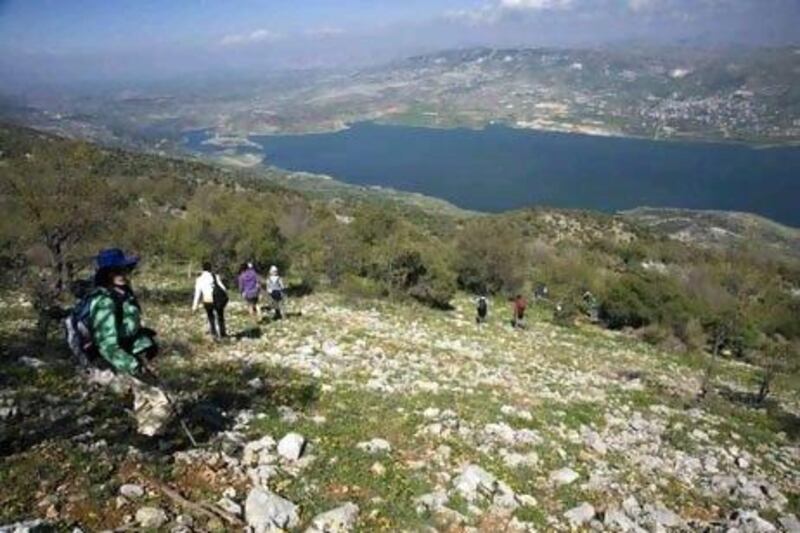The global travel industry offers huge potential for green investors, with the Middle East rapidly becoming a destination for eco-tourism.
There are an estimated 700 million travellers in the world annually generating about US$2.4 billion (Dh8.8bn) a day, according to Conservation International (CI). CI also reports that eco-tourism is a growing source of revenue for the long-term management and care of more than 33,000 protected areas worldwide.
When Malaysia's prime minister, Datuk Seri Najib Tun Razak, addressed Gulf investors in Abu Dhabi at the end of last month, he highlighted the investment opportunity offered by eco-tourism and green technology.
"We are targeting industries in which Malaysia has distinct advantages, such as eco-tourism, medical tourism, financial services, education, telecommunications and green technology, including renewable energy," he said at the time.
But Gulf investors who are keen to get in on the ground floor of the new global eco-tourism industry could do better to look for investment opportunities closer to home. The Middle East has the sunny climate needed to attract international tourists and has areas of outstanding natural beauty. At the start of the year, Morocco became the latest MENA country to announce plans to make "sustainable tourism" a key part of its national economic strategy. Although the plan, part of the government's Vision 2020 strategy, is designed to double the number of tourists visiting Morocco, strong emphasis is also placed on the sustainable growth of tourist locations and responsible custody of the environment.
The plan will initially focus on well-known destinations such as Marrakech and the Mediterranean coast. Eventually, it is hoped that activities such as desert and mountain trekking will be enhanced by new environmentally friendly developments such as desert eco-lodges.
The scale of the investment opportunity offered by eco-tourism is greatly increased by the difficulty of "greening" existing tourism facilities. Moroccan resorts such as Agadir, constructed using World Bank funding in the 1970s, are proving tough to tackle.
Morocco also raised a question mark over its green credentials with a controversial move to block a proposal made by Sweden in Qatar to monitor the trade of the 30 to 50 species of red coral. The supply of red coral is diminishing as a result of unsustainable extraction from the Mediterranean.
The ecologically sound proposal received the support of the UAE, but was blocked by countries such as Morocco and Tunisia on the grounds that a ban of extracting red coral from the sea could endanger the livelihoods of local fishermen.
And while governments may pay lip service to the greening of their tourism industries, it can prove prohibitively costly in real terms. For example, in November 2008 at the UN World Travel Conference, Zoheir Garrana, the Egyptian tourism minister, declared that the Red Sea resort of Sharm el-Sheikh was to become the country's first carbon-neutral holiday destination.
But although Egypt commissioned a thorough feasibility study, the task of greening the huge hotels and international chains has proven daunting. According to environment watchers, Egypt has so far achieved little more than token initiatives, such as volunteer clean-up days.
At the UN Climate Change Conference in Cancun, Mexico, in December, Mr Garrana promised that Egypt would be instigating a more thorough programme aimed at greening its massive tourist industry. According to official figures, 12.5m foreign travellers visited Egypt in 2009 and international tourism arrivals rose by almost 19 per cent in August compared with the same period the previous year.
Egypt's new green agenda for tourism is now on ice following the recent political upheaval, and foreign tourists are cancelling trips to Egyptian resorts.
However, the Middle East offers a wealth of environmentally friendly alternatives to large-scale resorts such as Sharm el-Sheikh. Lebanon, for instance, now offers a growing range of facilities for eco-tourists bent on taking trips to sustainable destinations. Lebanon is already well suited to the role in terms of branding, with its national flag featuring a picture of one of the country's cedar trees in the centre.
The nation offers facilities such as the Lebanon Mountain Trail, a 440-kilometre path that leads from the northern tip of the country to the south and passes through more than 75 towns and villages. It is the first long-distance hiking trail in Lebanon and promotes environmentally and socially responsible tourism. Other facilities include the Eco Village in Lebanon's Dmit Valley, where eco-tourists live in local camps or huts, eat organic food, help with farming and learn about the environment. The eco-friendly resort also offers classes in disciplines such as yoga and tai chi.
The relatively small scale of many of today's eco-tourism schemes should not deter investors. These types of projects can offer a long-term sustainability that would be impossible for large-scale tourist developments, such as Sharm el-Sheikh, to achieve.






